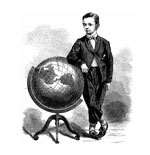
Night Bus Across Baluchistan
TALES FROM THE GREAT HIPPIE TRAIL — PART I
“I have seen many things in my travels…more than I can express. — Sirach 34:11
Only radical help from complete strangers — putatively Muslim, Sikh, and Catholic — preserved my life five decades ago. I spent America’s Bicentennial summer of 1976 far from home on what was known as “the Great Hippie Trail,” a 5,000-mile overland trek from Europe through Turkey, Iran, Afghanistan, Pakistan, and India, and into Nepal and drug-fueled enlightenment. Unknown to anyone at the time, 1976 would be the trail’s last year. In 1977 the Islamic Revolution struck Iran, and in 1978 Afghanistan dissolved into warfare, closing the land bridge to Asia.
At the University of Maryland in my junior year, I came across a flimsy advertisement titled “The Road to Kathmandu.” For $333 I could receive “transportation by bus and double occupancy of a tent” on an escorted 60-day ride from Frankfurt, Germany, to Kathmandu, Nepal. Intrigued, I ordered a countercultural guide published in London about the Hippie Trail. Its preface read:
A year spent in Asia is worth 10 years of formal education in the West. It helps to change your perspective on life and invariably induces permanent changes in your outlook unless you’re really stubborn and prejudiced. Don’t expect anything to work on time or in the way you’d expected. If you have the courage, traveling on your own is possibly the best way to go.
I’d already traveled in the States on Greyhound buses. Could a bus to Kathmandu be that different? With naïveté and ignorance in equal abundance, I flew to Germany to take my place on a worn-out Mercedes van with no air conditioning, no reclining seats, and no headrests for a two-month ride. The driver was an American woman in her 40s, known to us as Jan. She said she drove to Kathmandu twice a year and was the only American doing so. She had seven women and five men as passengers on my trip.
You May Also Enjoy
Handicapped people, who have such a limited ability to learn, can let their heart speak easily and thus reveal a mystical life that for many intelligent people seems unreachable.
The rise of Islamic extremism is putting increasing pressure on Christians in Muslim countries, where they are routinely victims of murder, violence, and discrimination.
Any brutal act of a crusader was his brutal act, not the Church's. The Church teaches that men who commit such acts will be severely judged by God in the afterlife.

